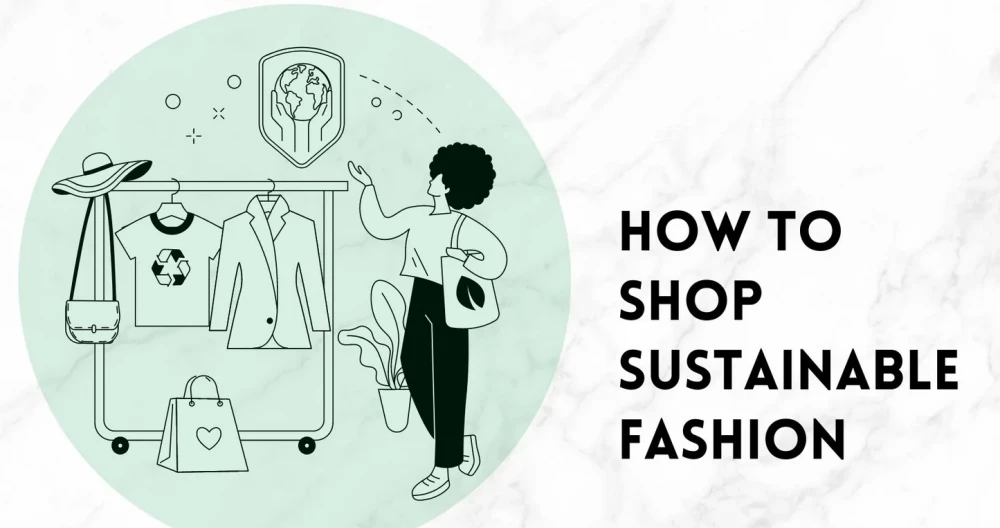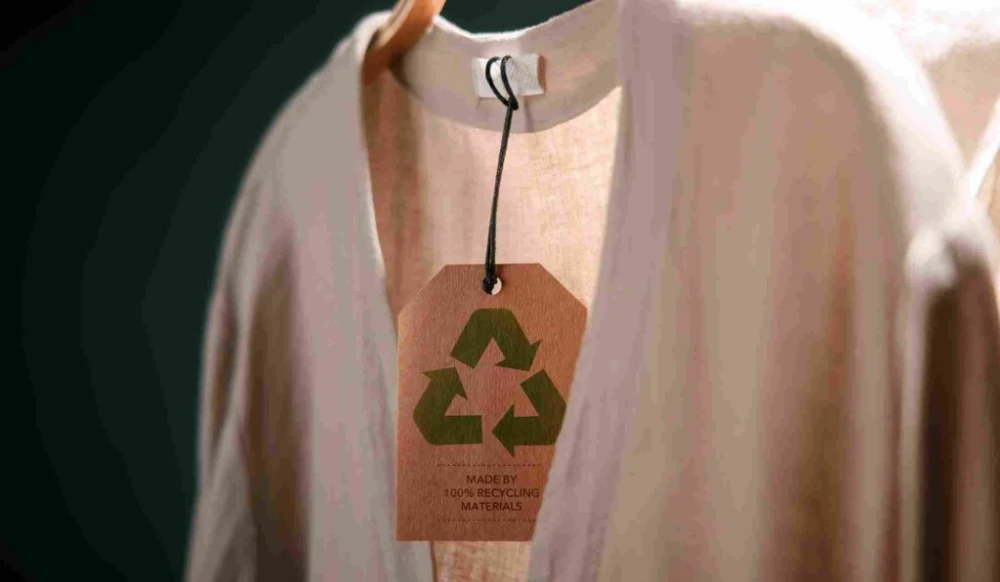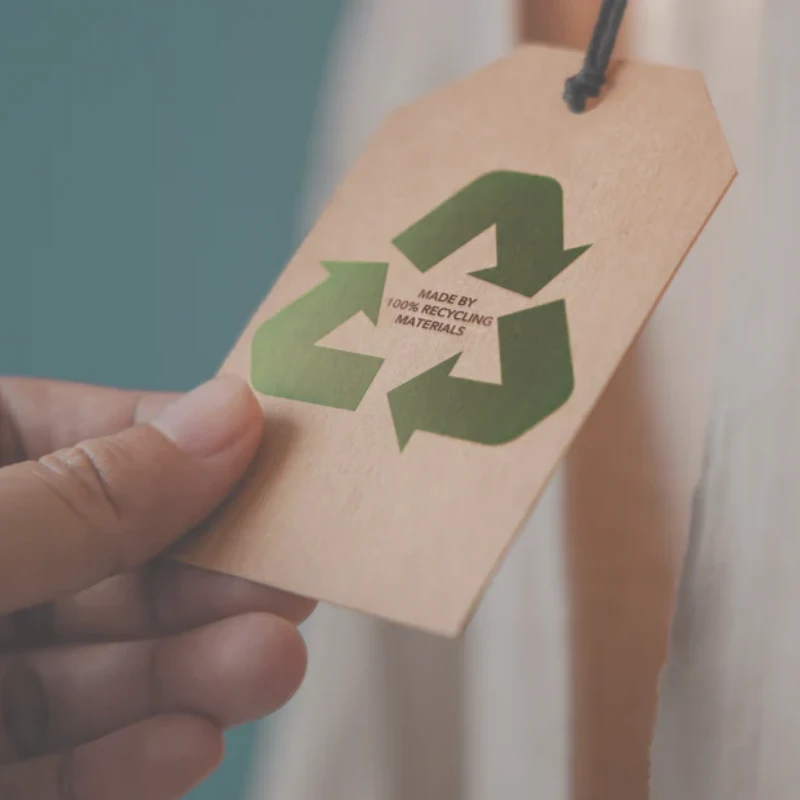You see more shoppers talking about sustainability these days, and brands are listening. The ethical clothing manufacturers on this list are changing the game, making eco-friendly choices easier for you. Check out this chart—over half of people want to buy eco-friendly apparel, but nearly half still don’t know where to find it!
With the market growing fast and new priorities among younger buyers, you have more options than ever to shop with purpose.
Key Takeaways
Ethical clothing focuses on sustainability, fair labor practices, and environmental health. Choose brands that prioritize these values.
Look for certifications like Fair Trade and GOTS to ensure your clothing is made responsibly. These labels indicate a brand’s commitment to ethical practices.
Transparency is key. Brands that share their supply chain details help you trust that your purchase supports fair trade and eco-friendly practices.
Avoid greenwashing by being cautious of vague claims. Real sustainable brands provide proof of their eco-friendly practices and certifications.
Your choices matter. Supporting ethical clothing manufacturers encourages better practices in the fashion industry and promotes a healthier planet.
What Makes Ethical Clothing Manufacturers Stand Out?
Defining Ethical Clothing
When you think about ethical clothing, you probably picture brands that care about people and the planet. Ethical fashion means more than just using eco-friendly fabrics. It’s about making sure every step, from design to delivery, puts worker welfare and environmental health first.
Brands that focus on ethical manufacturing use sustainable materials, pay fair wages, and avoid harming the environment. You’ll see them talk about fair trade, slow fashion, and responsibly made products. These brands want you to feel good about your choices, knowing your clothes come from a place of respect and care.
Key Criteria for Sustainable Clothing
You might wonder what sets truly sustainable clothing apart. Here’s a quick look at the main things you should check:
Criteria | What It Means |
|---|---|
Sustainability of materials | Uses eco-friendly fabrics and responsible sourcing |
Ethical labor practices | Treats workers fairly, with safe conditions and fair trade pay |
Certifications | Holds recognized eco-friendly and fair trade certifications |
Third-party audits | Gets checked by outside groups for ethical manufacturing |
Supply chain transparency | Shares info about where materials come from and how products are made |
You’ll notice that slow fashion brands often highlight these points. They avoid fast trends and focus on quality, eco-friendly materials, and fair trade. When you choose responsibly made clothing, you support a system that values people and the planet.
Certifications and Transparency
Certifications help you spot the most sustainable type of clothing. Look for labels like WRAP, B Corp, Fair Trade, SA8000, BetterWork, and FSC. These show a brand’s commitment to ethical manufacturing and eco-friendly practices.
Transparency matters, too. Brands that share their supply chain details and show who makes your clothes build trust. You want to know your purchase supports fair trade, slow fashion, and responsibly made products.
When a company values transparency, you can feel confident you’re picking sustainable options that match your values.
Tip: Always check for transparency and certifications before you buy. This helps you avoid greenwashing and ensures your clothes are truly eco-friendly, fair trade, and responsibly made.
Top 10 Ethical and Sustainable Clothing Manufacturers in 2025

Patagonia
Patagonia, based in Ventura, California, leads the way for ethical clothing manufacturers. You see their commitment to eco-friendly and fair trade practices in every product. Here’s what makes Patagonia stand out:
Uses recycled materials and organic cotton to lower environmental impact.
Supports fair trade by making sure workers get fair wages and safe conditions.
Donates 1% of sales to environmental causes through the 1% for the Planet initiative.
Offers Fair Trade Certified™ apparel, helping over 85,000 workers worldwide.
All cotton is certified organic by the Global Organic Textile Standard (GOTS).
Some fabrics are bluesign® certified, which means safer and more eco-friendly production.
Founding member of the Fair Labor Association and part of the Sustainable Apparel Coalition.
You can trust Patagonia for eco-friendly, fair-trade, and sustainable clothing that puts people and the planet first.
Everlane
Everlane, based in San Francisco, has become a favorite among ethical clothing manufacturers for its radical transparency and eco-friendly approach. You get to see exactly where your clothes come from and how they’re made.
Aims for net-zero emissions by 2050.
Advocates for climate disclosure laws and push for industry-wide change.
Uses organic cotton and is removing virgin plastics from its supply chain.
Launched a limited-edition collection made from surplus materials.
The ReNew collection uses recycled fishing nets and plastic bottles.
Shares detailed cost breakdowns for every product, so you know what you’re paying for.
Signed the Transparency Pledge, holding their supply chain accountable.
Everlane’s eco-friendly and fair trade focus means you can shop with confidence, knowing your choices support a better future.
Reformation
Reformation, based in Los Angeles, makes eco-friendly fashion look easy. This brand puts sustainability at the heart of everything it does. You’ll find a mix of recycled, regenerative, and deadstock materials in their collections.
Material Type | Description |
|---|---|
Recycled Synthetics | Made from recycled products. |
Closed-loop Semi-synthetics | It can be recycled back into the production process. |
Regenerative Natural Fibers | Sourced from farms that restore healthy ecosystems. |
Deadstock Fabrics | Uses leftover fabrics from other brands to cut down on waste. |
MWool | 70% recycled wool, a new material since 2023. |
Naia Renew | Sustainable fiber made from wood pulp and waste. |
Prioritizes organic and regenerative fibers.
Bans virgin synthetics, furs, and acrylic.
Runs the RefRecycling program to keep clothes out of landfills.
“Reformation is a direct-to-consumer sustainable fashion brand that ‘makes killer clothing without killing the environment,’” says CEO Hali Borenstein.
You’ll notice Reformation’s eco-friendly and fair trade focus in every detail, from their supply chain to their stylish designs.
PACT
PACT, based in Boulder, Colorado, is one of the most trusted ethical clothing manufacturers for everyday basics. You get soft, eco-friendly clothes that are good for you and the planet.
Core Value | Description |
|---|---|
Sustainability | Uses GOTS-certified organic cotton and runs recycling programs. |
Ethics | Partners with Fair Trade Certified factories for fair wages and safe work. |
Transparency | Shares clear info about materials and certifications. |
Community Engagement | Supports local communities through fair trade, linking your purchases to real social benefits. |
PACT’s products are certified organic under GOTS and made in Fair Trade factories. You can feel good knowing your eco-friendly basics support fair trade and sustainable practices.
Nature USA
Nature USA, located in California, brings innovation to sustainable manufacturing. You get eco-friendly clothing made with smart systems that adapt to new processes and products.
Nature USA uses reconfigurable and intelligent systems that boost flexibility and track sustainability metrics. Their Human-to-Machine transfer stations and Modular Robotic Modules help move knowledge from people to machines, making production more eco-friendly and efficient.
This approach means you get clothing that’s both high-quality and made with the planet in mind.
Yogi and Boo
Yogi and Boo, based in Bali, Indonesia, stands out among ethical clothing manufacturers for its deep community roots and eco-friendly focus.
Donated over $35,000 to the local charity Bali Wise and provided food during the pandemic.
First in Bali to achieve ISO14001 certification for Environmental Management.
Offers employee benefits like superannuation, health care, life insurance, paid leave, and profit-sharing.
You support fair trade and eco-friendly practices every time you choose Yogi and Boo. They show that ethical clothing manufacturers can make a real difference in their communities.
Thygesen Textile Vietnam
Thygesen Textile Vietnam brings sustainable innovation to the global stage. You get eco-friendly clothing made with advanced processes and strict standards.
Innovation Type | Description |
|---|---|
Waste Reduction | Focuses on reducing waste and environmental impact. |
Eco-friendly Materials | Uses recycled materials and develops new eco-friendly fabrics. |
LEAN Processes | Streamlines production to cut out waste and boost efficiency. |
Certifications | Holds OEKO-TEX® and GOTS certifications for sustainability. |
Thygesen Textile Vietnam proves that ethical clothing manufacturers can lead in both eco-friendly innovation and fair trade.
Five P Venture
Five P Venture, based in India, celebrates traditional craftsmanship while pushing for sustainable change. You get eco-friendly clothing that supports local artisans and preserves textile heritage.
Initiative Type | Description |
|---|---|
Sustainable Practices | Uses natural fabrics and eco-friendly dyeing. |
Community Support | Provides sustainable livelihoods for artisans. |
Ethical Production | Ensures fair compensation and follows fair trade policies. |
Environmental Standards | GOTS-certified facilities and solar power for minimal impact. |
When you buy from Five P Venture, you support fair trade, eco-friendly production, and the survival of ancient textile arts.
Billoomi Fashion
Billoomi Fashion, based in India, is a leader among ethical clothing manufacturers for small and large brands. You get eco-friendly, fair-trade clothing made with care and quality.
Certification | Description |
|---|---|
ISO 9001:2015 | Quality management system certification |
SEDEX-audited | Ethical audit certification for supply chain |
Billoomi Fashion’s focus on eco-friendly materials, fair trade, and strict quality standards makes them a top choice for brands that want to do better.
Friendtex
Friendtex, based in Denmark, shows that ethical clothing manufacturers can thrive in Europe, too. You get stylish, eco-friendly clothing made with respect for workers.
Aspect | Description |
|---|---|
Fair Labor Practices | No discrimination, zero tolerance for bullying, and fair wages. |
Safe Working Conditions | High health and safety standards, low accident rates. |
Supportive Values | Employees are respected, involved in decisions, and supported. |
Friendtex proves that fair trade, eco-friendly, and sustainable practices can go hand-in-hand with great design.
How to Buy Sustainable Clothing?

Checklist for Ethical Clothing
You want to make sure you buy sustainable clothing that matches your values. Here’s a simple checklist to help you spot truly sustainable clothing brands:
Step | What to Look For |
|---|---|
Materials | Organic cotton, recycled fibers, or natural fabrics |
Certifications | GOTS, Fair Trade, OEKO-TEX, or bluesign labels |
Transparency | Clear info about where and how products are made |
Labor Practices | Fair wages, safe working conditions, no child labor |
Environmental Impact | Low water use, renewable energy, waste reduction |
If a brand checks most boxes, you can feel confident about your sustainable clothing choice.
Tips for Finding Sustainable Brands

You have lots of options when you want to buy sustainable clothing, but not every brand is upfront. Try these steps to find the best sustainable clothing brands:
Review the brand’s sustainability report. Look for details about supply chain emissions and how they handle waste.
Use platforms like Good On You. These sites compare sustainable clothing brands and show their environmental impact scores.
Check certifications closely. Some labels allow minimal organic content, so read the fine print before you buy sustainable clothing.
Brands should review guidance and start internal checks to find gaps and improve their sustainable practices.
Red Flags to Avoid
You might see brands making big claims about sustainable clothing, but some use greenwashing tricks. Watch out for these common red flags:
Made With Recycled Materials: Some brands use synthetic fabrics and call them recycled, which isn’t always sustainable.
Carbon Offsetting / Carbon Neutral: Companies may use carbon offsetting to hide real emissions, making their sustainable claims misleading.
Vegan Leathers: Many vegan leathers are just synthetic materials that aren’t sustainable or eco-friendly.
If you spot these tactics, dig deeper before you buy sustainable clothing. Real sustainable clothing brands focus on honest practices, not just buzzwords.
Conclusion
You make a real difference when you choose ethical clothing. The fashion industry uses huge amounts of water and creates tons of waste, but your choices push brands to adopt better practices. More people now want eco-friendly clothes, which helps shift the industry toward sustainability.
Your support encourages brands to use fair labor and safe materials.
You help set new trends that value transparency and the planet.
Explore the brands in this guide. Stay curious and keep learning about sustainable fashion. Your choices matter!
FAQ
What does “ethical clothing” really mean?
Ethical clothing means you buy clothes made with respect for people and the planet. Brands use safe materials, pay fair wages, and avoid harming the environment. You support workers and help reduce pollution when you choose ethical options.
How can you spot greenwashing in fashion brands?
Look for vague claims like “eco-friendly” without proof. Real sustainable brands show certifications, share supply chain details, and explain their materials. If you see lots of buzzwords but no facts, dig deeper before you buy.
Are ethical clothes always more expensive?
You might pay a bit more for ethical clothing, but you get better quality and longer-lasting pieces. Many brands offer affordable options. Watch for sales or basics that fit your budget. You invest in people and the planet.
Can you recycle old clothes from ethical brands?
Yes! Many ethical brands run recycling programs or accept old items. You can also donate or repurpose your clothes. Check the brand’s website for details. Recycling helps cut waste and keeps your wardrobe sustainable. ♻️


